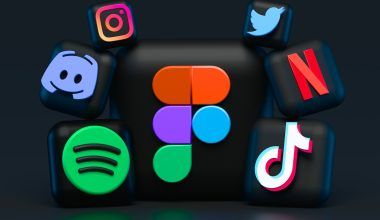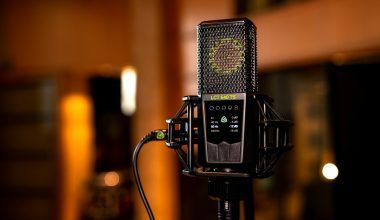If you’re an artist looking to get your music heard, Spotify is one of the best platforms to showcase your talent. With millions of listeners worldwide, having a Spotify artist profile is like having your own personalized stage where fans can discover, follow, and stream your songs. But if you’re new to this, you might be wondering: how do I create a Spotify artist profile?
Don’t worry—you’ve come to the right place. In this easy-to-read guide, I’ll walk you through every step to help you set up your artist profile, promote your music, and connect with your fans. Whether you’re just starting out or looking to enhance your current profile, this guide will cover everything you need.
Let’s get started!
Why You Need a Spotify Artist Profile
Before diving into the technical steps, let’s first understand why having a Spotify artist profile is so important. Spotify is more than just a streaming platform; it’s a powerful tool to grow your audience and establish yourself in the music industry.
Here are a few reasons why you need to create a Spotify artist profile:
- Reach Millions of Listeners: Spotify has over 500 million active users worldwide, giving you access to a huge potential audience.
- Control Your Brand: With a verified artist profile, you can add photos, bios, and tour dates to showcase your identity.
- Access to Analytics: Spotify for Artists provides insights into your listeners’ demographics, song performance, and playlists.
- Get on Playlists: Playlists are key to music discovery. A well-maintained artist profile can help you land on popular playlists, boosting your visibility.
Now that you know why this matters, let’s jump into the process of creating your artist profile.
Step 1: Distribute Your Music to Spotify
Before you can create a Spotify artist profile, your music needs to be available on the platform. You cannot upload songs directly to Spotify like you would on other platforms. Instead, you need a music distributor.
What is a Music Distributor?
A music distributor is a service that helps artists upload their songs to streaming platforms like Spotify, Apple Music, and Amazon Music. Some popular distributors include:
- DistroKid
- TuneCore
- CD Baby
- Ditto Music
These platforms will handle the technical side, ensuring your music meets Spotify’s requirements and gets published.
How to Choose the Right Distributor
When choosing a distributor, consider factors like pricing, ease of use, and additional services they offer, such as royalty collection or marketing tools. Once you pick a distributor, upload your songs, artwork, and metadata (song title, artist name, etc.).
After your music is live on Spotify, you can move on to the next step—claiming your Spotify artist profile.
Step 2: Claim Your Spotify Artist Profile
To manage your profile and gain access to all the perks of Spotify for Artists, you need to claim your profile. Here’s how to do it:
1. Go to Spotify for Artists
Head over to the official Spotify for Artists website (artists.spotify.com). Click on the “Get Access” button to begin the process.
2. Log In or Sign Up
If you already have a Spotify account, log in. If not, create a free account. Make sure to use an email address that you check regularly, as Spotify may contact you for verification.
3. Search for Your Artist Profile
Once you log in, Spotify will prompt you to search for your artist name. If your music is already live on Spotify, your artist name should appear. Select your profile to proceed.
4. Verify Your Identity
Spotify will ask you to verify your identity to ensure you’re the real artist or someone authorized to manage the profile. This may include:
- Providing links to your social media accounts
- Submitting proof of ownership (like music distributor details)
- Connecting with your music distributor
5. Wait for Approval
After submitting your request, Spotify will review your information. This process typically takes a few days. Once approved, you’ll receive an email confirmation, and you’ll be able to access your artist dashboard.
Congratulations! You’ve now officially claimed your Spotify artist profile.
Step 3: Set Up and Customize Your Artist Profile
Now comes the fun part—customizing your profile to make it unique and appealing. Here’s how to do it:
1. Add a Professional Profile Photo
Your profile photo is the first thing fans see, so make it count. Use a high-quality image that reflects your style and brand. Avoid blurry or low-resolution images.
2. Write a Compelling Artist Bio
Your bio tells your story. Share who you are, what inspires you, and any milestones you’ve achieved. Keep it personal and engaging. Don’t forget to mention new releases, upcoming tours, or collaborations.
Here’s a tip: Use a conversational tone to connect with your fans. For example:
- “Hi there! I’m [Your Name], a singer-songwriter from [City]. I write music that blends indie pop with heartfelt lyrics. Check out my latest single, ‘[Song Title]’!”*
3. Upload Your Best Music
Make sure your profile showcases your best songs. If you have a new release, feature it at the top of your profile so listeners can find it easily.
4. Add Artist Playlists
Creating your own playlists is a great way to engage with fans. Add your music, favorite tracks, or songs that inspire you. This helps fans connect with your music taste and discover more about you.
Spotify allows you to link to your social media platforms, like Instagram, Twitter, or Facebook. You can also add links to your online store or merch website. This makes it easier for fans to follow and support you.
Step 4: Get Verified as an Artist on Spotify
Once you claim your Spotify artist profile, you automatically get the blue verification checkmark. This badge shows listeners that your profile is authentic and official.
Why Verification Matters
- It builds trust with fans and makes your profile look professional.
- Verified profiles have access to exclusive tools, like advanced analytics.
- It helps you stand out in search results.
Step 5: Promote Your Spotify Artist Profile
Creating a Spotify artist profile is just the beginning. To build a loyal fan base, you need to promote your music actively. Here are some tips to get more streams and followers:
Promote your Spotify artist profile on Instagram, Facebook, TikTok, and Twitter. Use engaging posts, Stories, and Reels to share links to your songs and playlists.
2. Collaborate with Other Artists
Collaborations expose your music to a new audience. Partner with other artists to create songs, playlists, or joint promotions.
3. Submit Your Songs to Spotify Playlists
Spotify’s editorial playlists can skyrocket your visibility. Use Spotify for Artists to submit your music for playlist consideration before release day.
4. Run Ads on Spotify
Spotify Ad Studio allows artists to create audio ads to promote their music. Ads can target specific demographics, helping you reach your ideal listeners.
5. Connect with Your Fans
Engage with your fans through social media, email newsletters, or live performances. Announce new releases, share behind-the-scenes content, and show appreciation for their support.
Step 6: Track Your Performance with Spotify for Artists
Spotify for Artists provides powerful tools to monitor your music’s performance. You can track:
- Monthly listeners and streams
- Song performance across playlists
- Audience demographics (age, gender, location)
These insights help you understand what’s working and plan future strategies to grow your audience.
Final Thoughts
Creating a Spotify artist profile is a must for any musician who wants to share their music with the world. By following this guide, you’ll have a professional profile that stands out, attracts fans, and grows your music career. Remember to stay consistent, promote your music actively, and engage with your listeners.
Now it’s your turn! Go ahead and create your Spotify artist profile today. The world is waiting to hear your music.
For further reading, explore these related articles:
For additional resources on music marketing and distribution, visit DMT Records Pvt. Ltd..






